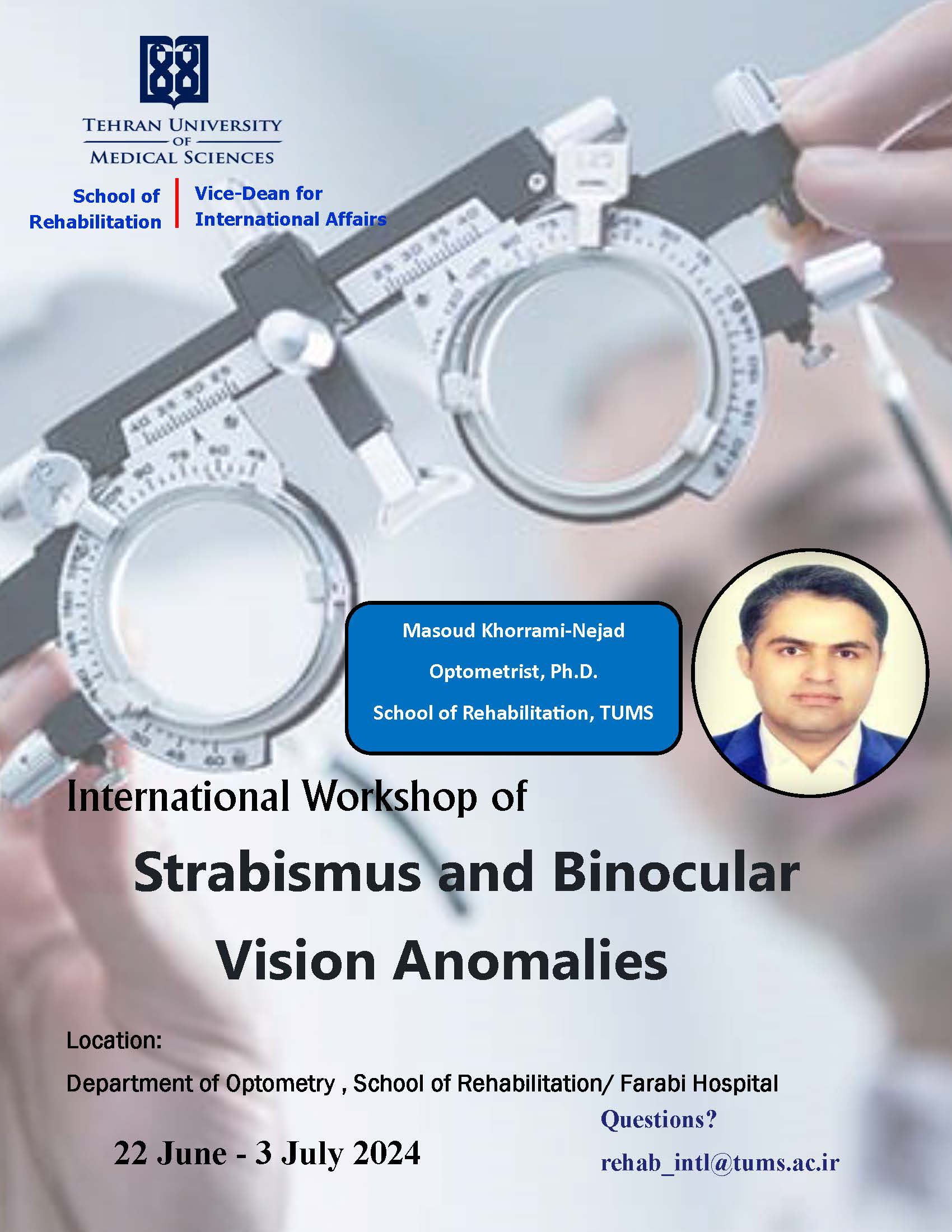Strabismus and Binocular Vision Anomalies
| Code | 158545 |
|---|---|
| دانشکده/پردیس | School of Rehabilitation |
| گروه/دانشکده | Department of Optometry |
| Degree | Training Program |
| Apply | Apply |

International Workshop of Strabismus and Binocular Vision Anomalies
Overview:
This intensive course provides optometry students and practitioners with advanced knowledge and skills related to strabismus and binocular vision disorders. Through a combination of lectures and hands-on lab sessions, students will learn to recognize, diagnose, and manage a wide range of strabismus and binocular vision anomalies. Who Should Attend:
This course is intended for optometrists and optometry students and is open to 4th year optometry students and licensed optometrists.
About this Course:
In this course students will gain hands-on proficiency in using clinical tests and prescribing management strategies. The course aims to equip optometrists to properly diagnose and manage complex strabismus and binocular vision anomalies.
Workshop Highlights:
- Definition, classification, epidemiology and etiology of various strabismus types including esotropia, exotropia, hypotropia, and hypeytropia
- Diagnostic techniques for objective evaluation of strabismus including cover tests, ocular motility assessments, and prism bar covers tests
- Advanced binocular vision assessment methods such as pleoptic testing, vergence testing, ocular motility evaluations
- Management approaches for strabismus including vision therapy, prisms, occlusion therapy, and surgical options
- Binocular vision disorders including convergence insufficiency, concussion-related visual dysfunction, and amblyopia
- Associated conditions including refractive errors, neuropathies, and craniofacial anomalies
Students will gain hands-on proficiency in using clinical tests and prescribing management strategies. The course aims to equip optometrists to properly diagnose and manage complex strabismus and binocular vision anomalies.
Tuition Fee
Tuition Fee: 1000 U.S. Dollars (Whole Package Program)
500$ is for educational fees & the remaining 500$ is for other expenses including dormitory/hoteling, transfer, etc.
Local Organizing Committee
Masoud Khorrami- Nejad, PhD, Department of Optometry, School of Rehabilitation, Tehran University of Medical Sciences
Masoud Khorrami- Nejad, PhD, Vice- Dean for International Affairs, School of Rehabilitation, Tehran University of Medical Sciences
Sara Roshani, Officer of International Affairs, School of Rehabilitation, Tehran University of Medical Sciences
